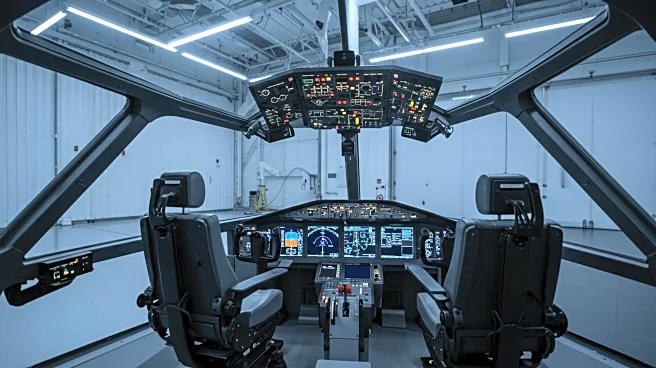What's Happening?
Sierra Nevada Corporation (SNC) has introduced a new aircraft, the Freedom Trainer, designed for the US Navy's Undergraduate Jet Training System (UJTS) competition. This initiative aims to replace the aging Boeing T-45 trainers. The Freedom Trainer is a twin-engined jet featuring a two-seat tandem cockpit and the latest Martin-Baker Mk18 ejection seats. It is powered by the Williams International FJ44-4M turbofan. SNC's entry joins a competitive field that includes Boeing's T-7A, a Textron-led bid with the Leonardo M-346, and the Lockheed Martin/Korea Aerospace Industries T-50. Despite the US Navy's recent removal of the requirement for the new trainer to perform field carrier landing practice (FCLP) to touchdown, SNC emphasizes the Freedom Trainer's capability in this area, promoting it as a key asset for training naval aviators.
Why It's Important?
The introduction of the Freedom Trainer by SNC into the UJTS competition is significant as it highlights the ongoing efforts to modernize the US Navy's training fleet. The competition among major aerospace companies like Boeing, Textron, and Lockheed Martin underscores the strategic importance of securing military contracts, which can lead to substantial economic benefits and technological advancements. The Freedom Trainer's design, which promises lower life cycle costs and extensive operational capabilities, could influence the Navy's decision-making process, potentially setting new standards for military training aircraft. This development also reflects broader trends in defense procurement, where cost efficiency and advanced training capabilities are increasingly prioritized.
What's Next?
The US Navy is expected to release a final solicitation for the UJTS by December 2025, with a contract award anticipated in January 2027. As the competition progresses, stakeholders will closely monitor the Navy's evaluation of the competing designs. The outcome will have implications for the involved companies, potentially affecting their market positions and future defense contracts. Additionally, the Navy's decision will impact the training of future naval aviators, shaping the operational readiness of the US military.









